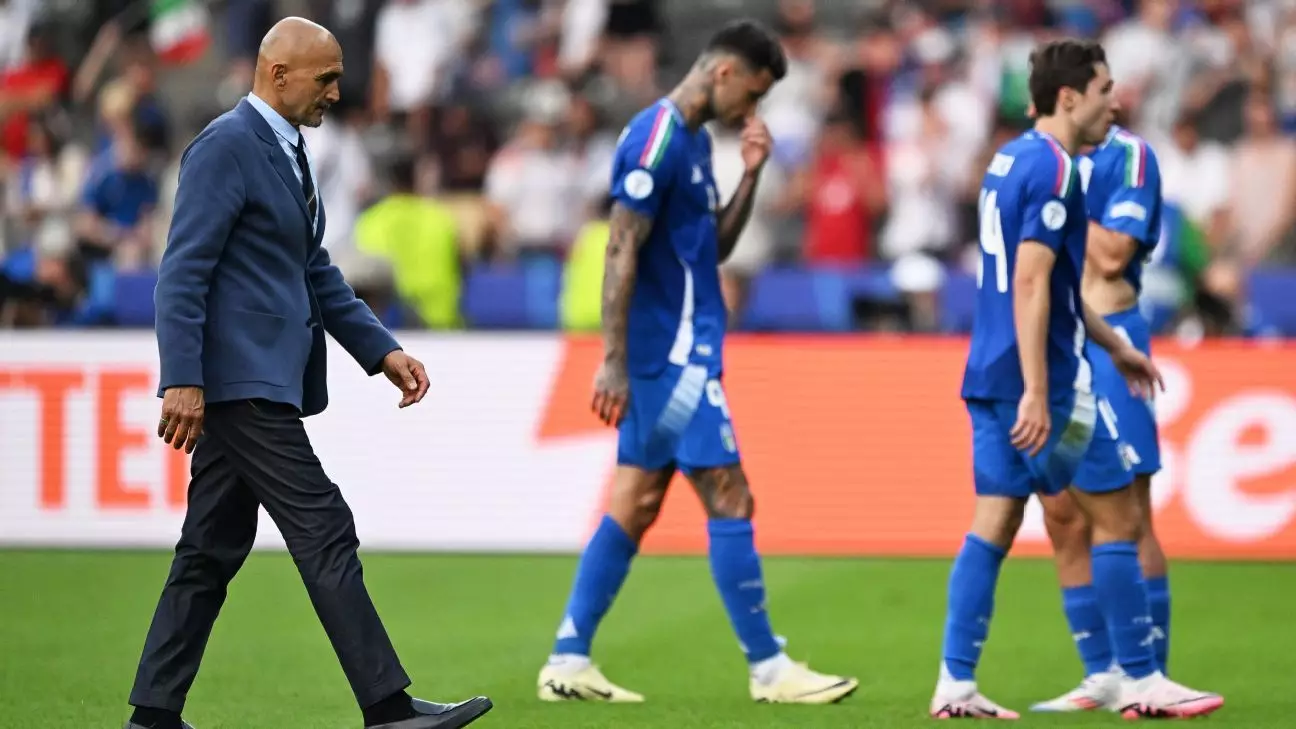Italy entered Euro 2024 as defending champions, but their performance left much to be desired. The 2-0 loss to Switzerland in the round-of-16 was a disappointing outcome that highlighted various shortcomings within the team. While factors such as player fatigue and lack of speed were attributed to the defeat, much of the blame fell on the shoulders of coach Luciano Spalletti.
Following the loss, Spalletti offered several excuses for the team’s poor performance, including the conceding of an early goal and player fatigue due to a long club season. However, it was only after a string of explanations that he admitted to his own responsibility as the coach. This lack of immediate accountability reflects poorly on Spalletti’s leadership and decision-making.
In contrast to Spalletti’s deflection of blame, the players took a more honorable approach by accepting their defeat graciously. Statements from Bryan Cristante, Matteo Darmian, and Gianluigi Donnarumma showed a willingness to take ownership of the team’s failure and move forward positively. This stark difference in attitudes between the coach and players further emphasizes the disconnect within the Italian squad.
Spalletti’s success in club football did not necessarily translate to the international stage, where different tactics and strategies are required. His failure to adapt to the challenges of international football, such as limited training time and repetitive competitions, showcased a lack of versatility and tactical acumen. The discrepancy between his renowned club achievements and his dismal performance with the national team raises questions about his capabilities as a coach.
Throughout the tournament, Spalletti’s tactical decisions were erratic and inconsistent, causing confusion and instability within the team. His abrupt changes in personnel and formation reflected a lack of clear direction and strategy, undermining the team’s cohesion and performance. Furthermore, his public outbursts and paranoid behavior, including unfounded accusations of a “mole” in the team, painted a negative image of his leadership and professionalism.
Spalletti’s history of volatile behavior, characterized by spiky remarks and sensitivity to criticism, detracted from his credibility as a coach. His past actions, such as abruptly leaving his previous club job and engaging in inappropriate remarks during press conferences, demonstrated a lack of maturity and composure. These character flaws not only affected his relationship with the players but also reflected poorly on the team as a whole.
The disappointment of Italy’s Euro 2024 campaign under Luciano Spalletti serves as a cautionary tale about the importance of effective leadership and adaptability in football. The team’s lackluster performance and Spalletti’s shortcomings highlight the critical role of coaching in shaping a successful national team. Moving forward, Italy must learn from this experience, address their weaknesses, and strive for better cohesion and performance under new leadership.


Leave a Reply